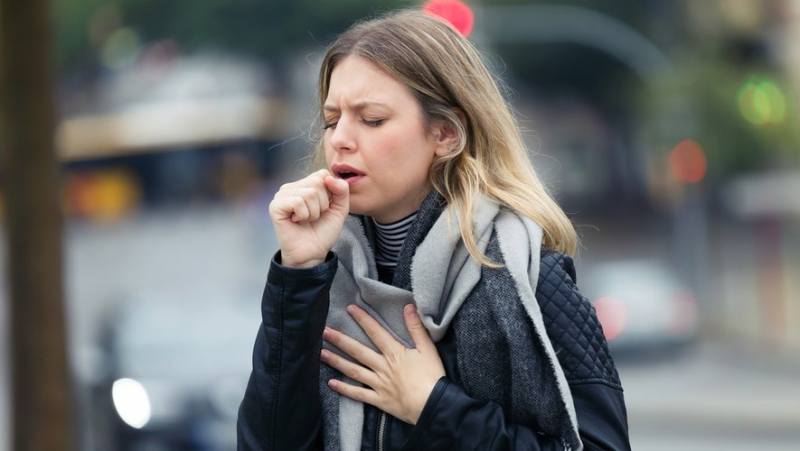You have a cough after an infection: when to worry after being sick ?

Toux après une infection : pas d’inquiétude avant deux mois
You cough three weeks or even up to two months after contracting a respiratory infection ?
Don't worry, it's completely normal. You have to be patient, according to a new study which states that no medication has shown any benefit in making it disappear more quickly.
A scientific article which compiles all the studies published on the subject (a meta-analysis) carried out at the University of British Columbia (Vancouver, Canada) has just been published: it concludes that cough following a respiratory infection, the one that annoys us all for weeks is common. Concretely, it can persist between 3 and 8 weeks after the infectious episode.
11% to 25% of adults affected after infection
This cough, which lasts between three and eight weeks (called "subacute"), results from a series of inflammatory reactions triggered by a respiratory infection, leading in particular to an increase in sensitivity of the bronchi and increased production of mucus.
This substance, which lines the inside of the bronchi, constitutes a defense barrier against microbes and moistens the respiratory tract to breathe better. The authors of the study estimate that post-infectious cough would affect between 11 and 25% of adults following a respiratory infection.
No effective treatment for post-infectious cough
In light of the scientific literature, the authors of the study are categorical: no evidence justifies the use of pharmacological treatments to reduce the duration of post-infectious cough. Systematic analyzes of randomized controlled trials involving inhaled corticosteroids, bronchodilators, cough suppressants or even antibiotics have found no demonstrated effectiveness.
On the other hand, most trials demonstrated improvement in cough symptoms without the use of medication. Conclusion: post-infectious cough stops spontaneously and self-medication is at best useless, at worst dangerous.
Post-infection cough or tuberculosis ?
The clinical diagnosis of post-infectious cough is established in a person who has recently been respiratory infected by a virus or bacteria, but also after ruling out various potential diseases which are present. origin of a subacute or chronic cough – such as asthma or chronic obstructive pulmonary disease (COPD) or gastroesophageal reflux disease, etc. -.
Whooping cough should also not be ruled out, in people with a cough at its peak (known as "paroxysmal"), vomiting following coughing fits and inspiratory wheezing.
Beyond 8 weeks of cough: take matters into your own hands
The persistence of cough or the presence of warning symptoms such as coughing up blood (hemoptysis), dysphagia (difficulty swallowing, whether food, liquids or even saliva), or shortness of breath (dyspnea) disproportionate to the person's physical condition justifies the carrying out of additional examinations, in particular a chest x-ray. A history of prolonged smoking is also a warning sign.
Coughs persisting beyond 8 weeks are categorized as "chronic" and require thorough evaluation, including pulmonary function tests to rule out asthma or COPD.
And the authors conclude: "Patients must be reassured that post-infectious cough is limited in time and that it resolves on its own. Spreading this message can reduce unnecessary prescriptions, including antibiotics. Doctors should advise patients to make a follow-up appointment for possible additional tests if the cough has not gone away on its own within 8 weeks after infection or if new symptoms develop. appear."




